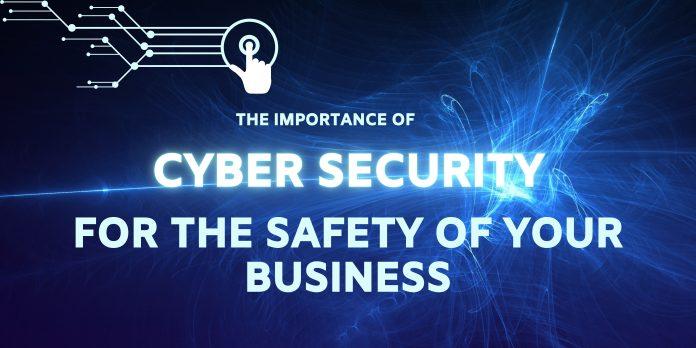Currently, technology drives almost every aspect of business operations, and the importance of robust cybersecurity measures cannot be overstated. From small startups to multinational corporations, every organization is vulnerable to cyber threats. This guide aims to provide you with an in-depth understanding of what cyber security entails, why it’s crucial for your business, and practical steps you can take to fortify your digital defenses.
Understanding Cyber Security: More than Just a Buzzword
Cyber security refers to the practice of safeguarding your digital assets, including data, networks, systems, and applications, from malicious attacks, unauthorized access, and potential breaches. It involves a holistic approach that encompasses technology, processes, policies, and human awareness.
The Stakes Are High: Why Cyber Security Matters
In today’s interconnected world, the ramifications of a cyber-attack can be devastating. From financial losses and damaged reputation to legal liabilities and compromised customer trust, the consequences are far-reaching. Let’s explore some compelling reasons why cyber security should be a top priority for your business:
- Financial Losses:
Cyber-attacks can lead to direct financial losses due to theft of sensitive information, ransom payments, and operational disruptions.
- Reputation Damage:
A breach can tarnish your company’s reputation, eroding customer trust and loyalty. Recovering from a damaged reputation can be a long and arduous process.
- Legal and Regulatory Penalties:
Depending on your industry and location, failure to adequately protect sensitive data can result in hefty fines and legal actions.
- Intellectual Property Theft:
Competitors or malicious actors may attempt to steal your intellectual property, undermining your competitive advantage.
- Operational Disruption:
A successful cyber-attack can disrupt your business operations, leading to downtime and productivity losses.
The Cyber Threat Landscape: Understanding Your Adversaries
To defend against cyber threats effectively, it’s essential to understand the various adversaries that may target your business and what types of cyber security:
Hackers:
Individuals or groups with malicious intent, seek unauthorized access to systems for financial gain, personal vendettas, or just sheer thrill.
Cybercriminals:
These are professional criminals who specifically target digital assets for monetary gain, often through methods like ransomware attacks.
Insiders:
Employees or contractors with privileged access may misuse their credentials to compromise security intentionally or inadvertently.
Nation-State Actors:
Government-sponsored attackers aim to steal classified information, conduct espionage, or disrupt critical infrastructure.
Building a Strong Cyber Security Framework: Proactive Measures
A robust cyber security framework involves a combination of technical tools, best practices, and employee awareness. Here’s a step-by-step guide to help you establish a strong defense:
- Assessment and Analysis: Know Your Risks
Conduct a comprehensive assessment of your digital assets and potential vulnerabilities.
Identify sensitive data and determine its level of protection.
Perform a risk analysis to prioritize threats based on their potential impact.
2. Implement Strong Access Controls
- Enforce the principle of least privilege (POLP) to limit user access to only what’s necessary for their role.
- Implement multi-factor authentication (MFA) to add an extra layer of security.
3. Regular Software Patching and Updates
- Keep all software, including operating systems and applications, up to date with the latest security patches.
4. Firewalls and Intrusion Detection Systems
- Deploy firewalls to filter incoming and outgoing network traffic, blocking unauthorized access.
- Utilize intrusion detection systems (IDS) to monitor network activity and detect suspicious behavior.
5. Encryption: Protecting Data at Rest and in Transit
- Encrypt sensitive data both at rest (stored on devices or servers) and in transit (being transmitted over networks).
6. Employee Training and Awareness
- Conduct regular training sessions to educate employees about cyber threats, safe practices, and social engineering techniques.
7. Incident Response Plan
- Develop a detailed plan outlining steps to take in case of a cyber incident, including communication and containment strategies.
8. Regular Security Audits and Penetration Testing
- Perform routine security audits to assess the effectiveness of your security measures.
- Conduct penetration testing to identify vulnerabilities that could be exploited by attackers.
Emerging Trends in Cyber Security Dubai: What’s Next?
The field of cyber security uae is continually evolving to keep up with the ever-changing threat landscape. Stay ahead of the curve by embracing these emerging trends:
- Zero Trust Architecture: Move away from the traditional perimeter-based security model and adopt a zero-trust approach that verifies every user and device accessing your network.
- Artificial Intelligence (AI) and Machine Learning (ML): utilize AI and ML to analyze massive amounts of data and detect anomalies or patterns that indicate potential threats.
- Cloud Security: As businesses increasingly migrate to cloud environments, focus on robust cloud security measures to protect your data and applications.
- Biometric Authentication: Biometrics, such as fingerprints and facial recognition, provide more secure authentication methods compared to traditional passwords.
- IoT Security: The rise of the Internet of Things introduces new security challenges. Implement stringent security protocols for IoT devices to prevent unauthorized access.
Conclusion: Safeguarding Your Digital Future
In the interconnected digital unsafe digital world, cyber security is not just a luxury but an imperative for businesses of all sizes. Once you understand the risks, stay informed about the latest threats, and implement a comprehensive security strategy, you can fortify your business against the evolving cyber landscape. Remember, cyber security in Dubai is an ongoing journey, not a destination. Stay vigilant, adapt to new challenges, and secure your digital future.



